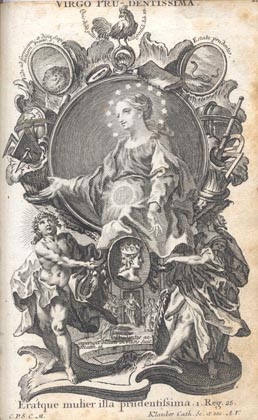
Thursday, September 24, 2020 –
Okie dokie campers! Today is the last of the THREE PILLARS OF THE CHURCH’S AUTHORITY: THE MAGISTERIUM, which is probably the most difficult of the three pillars to grasp.
A lot of people confuse this pillar of the Church’s authority to mean anything that bubbles out of the mouth of the Pope is Gospel truth and infallible. Sorry, but no. Generally speaking—and thankfully!—off the cuff remarks made on a plane about current events do NOT fall under the umbrella of infallibility, and therefore not under the Magisterium.
The Catechism section on **what** the Magisterium is, is blessedly short. And, since I am not going to go into a lengthy discussion on the differences between extraordinary and ordinary magisterium, we can hopefully keep today’s post under 1,000 words. WOOT!
We will start the Glossary section of the Catechism:
MAGISTERIUM: The living, teaching office of the Church, whose task it is to give as authentic interpretation of the word of God, whether in its written form (Sacred Scripture), or in the form of Tradition. The Magisterium ensures the Church’s fidelity to the teaching of the Apostles in matters of faith and morals (85, 890, 2033).
And the “short” section of the Catechism:
The Magisterium of the Church
85 “The task of giving an authentic interpretation of the Word of God, whether in its written form or in the form of Tradition, has been entrusted to the living teaching office of the Church alone. Its authority in this matter is exercised in the name of Jesus Christ.” This means that the task of interpretation has been entrusted to the bishops in communion with the successor of Peter, the Bishop of Rome.
86 “Yet this Magisterium is not superior to the Word of God, but is its servant. It teaches only what has been handed on to it. At the divine command and with the help of the Holy Spirit, it listens to this devotedly, guards it with dedication and expounds it faithfully. All that it proposes for belief as being divinely revealed is drawn from this single deposit of faith.”
87 Mindful of Christ’s words to his apostles: “He who hears you, hears me”, the faithful receive with docility the teachings and directives that their pastors give them in different forms.
Catechism In Brief – 100 The task of interpreting the Word of God authentically has been entrusted solely to the Magisterium of the Church, that is, to the Pope and to the bishops in communion with him.
So, what is the Magisterium and its duties / function:
- It is tasked with giving an authentic interpretation of the Word of God found in either Sacred Scripture or Sacred Tradition (AKA they cannot make stuff up!)
- Its authority comes directly from Christ, and is therefore handed down (entrusted) to the Pope (successor of Peter) and the Bishops (successors of the Apostles)
- It is NOT above (superior) to the Word of God (again, cannot make stuff up!)
- It IS servant to the Word of God (its function is to teach what has been handed down from the Holy Spirit)
In short, the Magisterium is the teaching authority of the Church!
That all makes sense, right!? Okay, moving on. Earlier I mentioned two “magisteriums” (“magesterii?”): extraordinary and ordinary. They all fall under the umbrella pillar of THE MAGISTERIUM, but here are some brief definitions of each from John Hardon’s Catholic Dictionary:
Extraordinary (Solemn) Magisterium – “The Church’s teaching office exercised in a solemn way, as in formal declarations of the Pope or of ecumenical councils of bishops approved by the Pope. When the extraordinary magisterium takes the form of papal definitions or conciliar decisions binding on the consciences of all the faithful in matters of faith and morals, it is infallible.” (Father John A. Hardon, S.J., Catholic Dictionary, p. 278)
Basically, (a) Ex Cathedra (from the Chair) statements from the Pope (RAREST of all!) and (b) Solemn definitions and formal declarations of ecumenical councils (personally, I like to remember/think of these as the “anathema” statements…but that’s just my oversimplification).
Side note: just to show how rare ex cathedra statements by the Pope are, here is the list:
- Pope Pius IX, in Ineffabilis Deus (December 8, 1854), defined the dogma of the Immaculate Conception of Mary
- Pope Pius XII, in Munificentissimus Deus (November 1, 1950), defined the dogma of the Assumption of the Blessed Virgin Mary into heaven
Ordinary Magisterium – “The teaching office of the hierarchy under the Pope, exercised normally, that is, through the regular means of instructing the faithful. These means are all the usual channels of communication, whether written, spoken, or practical. When the ordinary magisterium is also universal, that is, collectively intended for all the faithful, it is also infallible.” (Father John A. Hardon, S.J., Catholic Dictionary, p. 278)
And that, dear readers, concludes our super basic primer on the THREE PILLARS OF THE CHURCH’S AUTHORITY. Over the next five days I will be doing our Captain’s Log roundups of the last set of basic primers so anyone who missed a day or week or month can easily search and read each set.
Virgin most prudent, pray for us!
